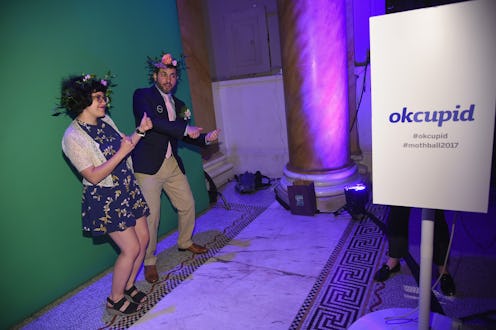What’s this? Someone is telling us that it's OK to lie on our online dating profiles? And that person is an economist, to boot? Well, I guess we should all take his advice then, shouldn't we?
In an interview with LearnVest, economist Paul Oyer, author of Everything I Ever Needed to Know About Economics I Learned from Online Dating, posits that it’s A-OK to lie on your online dating profile. Although I think he’s right in viewing online dating as a marketplace — pretty much all dating is a marketplace, whether it’s online or off — I’m not sure I’m totally convinced by the rest of his argument. Here’s how he sees it:
Explains Oyer, “Economists think of lying as a rational thing to increase utility, or happiness. Where parties’ interests aren’t completely aligned, we expect some people will misrepresent the truth.” The same, he says, is true of online dating: “A large portion of lying on dating sites is a rational response to try to improve the number of responses a profile gets. Even if you’re determined to be 100 percent honest when setting up an online profile, you should expect that your competition is fudging the truth.” The result? The implementation of a branch of game theory called “cheap talk.” According to Oyer, “This framework considers the potential conflict between a party’s own preferences and the person he or she is trying to attract, to analyze when (or if) it’s sensible to hide information or lie. This could take the form of a dater misrepresenting himself online, or an executive sugarcoating things to boost their stock prices.”
No matter what anyone says, I will always, always, always think that when it comes to dating (and a whole lot of other things), honesty is the best policy. No matter how much you like someone — or, y’know, how hot you think they are — why would you ever want to pretend to be someone you’re not, just to impress them? I belong to the school of thought that believes that if they don’t like the “real you” (whatever that is), then they’re not worth your time. You deserve someone who actually digs you, not someone who digs a pretend you, and aren't your lies going to be eventually discovered anyway?
But at least Oyer admits that there are limits to how much fudging you can do on your online dating profile. “To be rational, the truth can only be mildly off-base,” he says. “Executives can’t stretch the truth beyond belief, just like you can’t say you’re 29 and show up as a 50-year-old. When it’s immediately obvious that you aren’t telling the truth, people will be less likely to believe what you say in the future.” True that.
Ultimately, a lot of the tenets of online dating are true of offline dating, too; it’s just the initial interaction that’s slightly different (i.e., catching your first glimpse of someone on a computer screen, versus spotting them across a crowded bar). Of course you’re going to want to present the best version of yourself to your potential date. What you don’t want to do is present a version that’s so different from yourself that there’s no actual “you” involved. You can’t sustain a relationship over the long term if you’re playing a part the entire time. Because really, who are you lying to more: Your date…or yourself?
